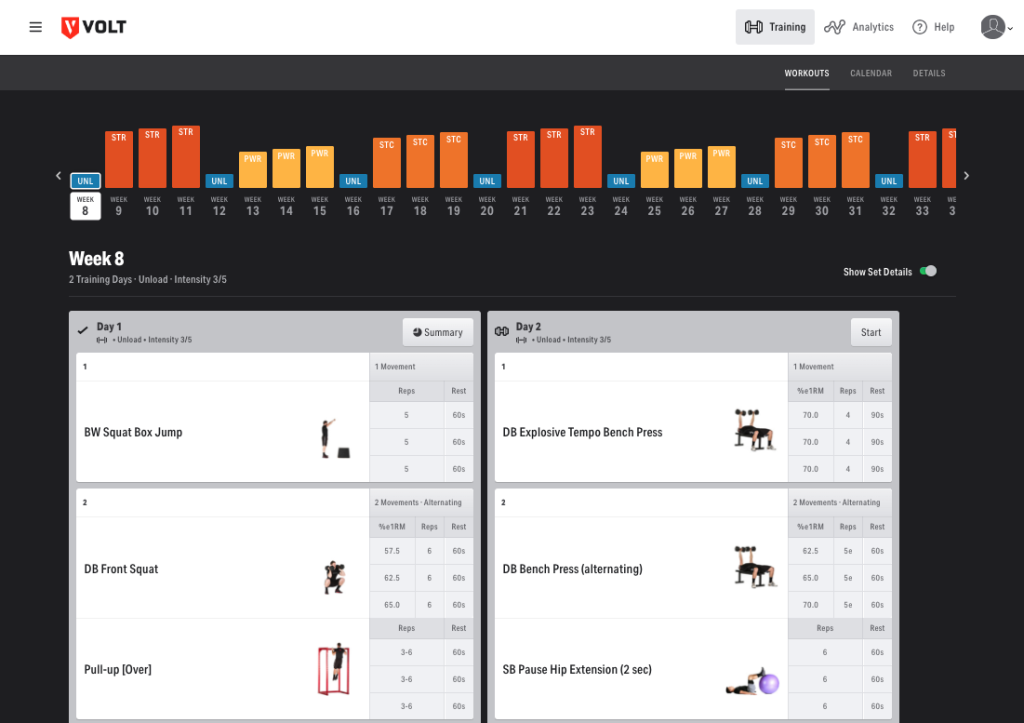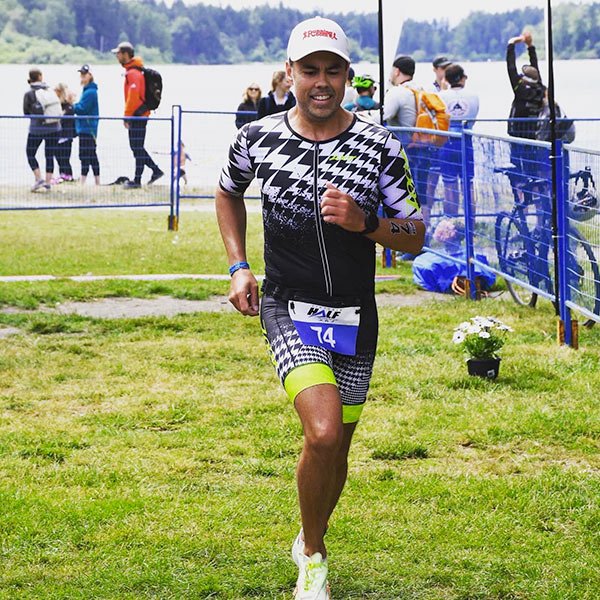I predominantly eat plant-based and am enjoying the benefits of this lifestyle. I say "lifestyle" because I don't do diets; for me diets are time based activities or plans that ultimately end and so do the benefits. To be honest, I find diets extremely hard to maintain and can be unrealistic for those with busy lives yet, for some people diets can work. Maybe they are a kick-starter into a better "lifestyle" of eating? For me, life revolves around better choices and better preparation to eat healthy consistently and sustainably.
The caveat is that my genes dictate that when I eat too much meat or foods with higher fat percentages it can wreak havoc on my cholesterol and I inevitably will slip over the healthy range. It's frustrating because I consider myself as fit, I consistently train 4-5 days a week, running, cycling, swimming, and strength. I'm within range of a healthy weight (BMI, Body Fat%, etc.) because I eat more plant-based diet and I would definitely be in a worse position if I wasn't. However, there are still ways to eat an unhealthy plant-based diet but eating more plant-based can still be the healthier option in my opinion. Here are few ways on how to maintain plant-based eating:
Eating a plant-based diet is a great way to improve your health and reduce the environmental impact. However, sustaining a plant-based diet can be tricky. The transition to a plant-based diet can seem overwhelming at first, particularly if you are used to a diet that includes animal products.
To start, try to transition gradually by incorporating more plant-based meals into your diet. You can start by having one meatless meal a day, and gradually increase the frequency over time. This allows your taste buds and your body to adjust to the changes in your diet. Starting slowly also helps to ensure that you won't feel overwhelmed and give up on your plant-based diet goals. Incorporating cheat meals is also one way to reward yourself if you've been successful over the week.
Planning your meals in advance can help you stay on track with your plant-based diet. Make a grocery list and plan your meals for the week ahead of time. This can help you avoid impulsive purchases of animal products and ensure that you have all the ingredients you need for your plant-based meals. Meal planning also helps you save time and money and saves you from eating out or making unhealthy choices.
If you are transitioning to a plant-based diet, you may need to supplement certain nutrients that are typically found in animal products, such as vitamin B12 and iron. Consult with a healthcare professional to determine if supplementation is necessary. With time, you can create a diet that works for you and your health goals. Remember to be patient with yourself and take it one step at a time. With consistency, you can make the transition to a sustainable plant-based diet that benefits both your health and the environment.
Partnering up can be a beneficial way to maintain a healthy lifestyle. It provides accountability, support, and motivation that can help you stay on track. You can ask a friend, join a healthy eating group, hire a nutritionist, or use a meal delivery service.
Having a friend or family member who shares your healthy eating goals can be an excellent motivator. You can work together to share healthy recipes, meal prep, and hold each other accountable. Joining a group of like-minded individuals who are also trying to eat healthier can be an excellent source of support and motivation. You can share tips, recipes, and success stories, and you'll have a built-in support system to help you stay on track.

Hiring a nutritionist or dietitian can provide personalized guidance and support to help you achieve your healthy eating goals. They can help you create a meal plan, suggest healthy food options, and provide ongoing support to keep you motivated. Using a meal delivery service takes the guesswork out of planning, providing healthy, pre-made meals that are especially helpful if you're short on time.
Partnering up with eating healthier can help you achieve your goals and maintain a healthy lifestyle. There are several ways to get the support and motivation you need. You can choose the option that best suits your lifestyle.
Regular exercise is crucial for maintaining optimal health, reducing the risk of chronic diseases, and promoting overall well-being. An exercise program can help to complement a healthy diet and keep you motivated to maintain a plant-based lifestyle.
The first step in creating an exercise program to maintain a healthy diet is to determine your fitness level and goals. Consult with a healthcare professional to ensure that you are healthy enough to exercise and to help you create a plan that is tailored to your specific needs and goals.
When it comes to exercise, variety is key. Aim to include a combination of aerobic exercise, strength training, and flexibility exercises in your routine. Aerobic exercise, such as brisk walking, jogging, or cycling, helps to improve cardiovascular health and burn calories. Strength training, such as weight lifting or bodyweight exercises, helps to build muscle and increase metabolism. Flexibility exercises, such as yoga or stretching, can help to improve range of motion and prevent injuries.

It is important to enjoy the exercise you choose and make it a part of your lifestyle. Find activities that you enjoy and that fit into your schedule and make them a priority. Once you have an exercise plan in place, you will find that eating healthy comes easier.
We've gone through a few ways that I find help maintain my plant-based diet lifestyle. They are an effective way to improve your health and also the health of the planet. By gradually transitioning to a plant-based diet, planning meals, and incorporating a variety of whole grains, fruits, vegetables, nuts, seeds, and legumes, you can create a sustainable and nutritious diet. Additionally, partnering up with friends or family members and incorporating regular exercise into your routine can help to maintain motivation and support overall health and wellness. By making these lifestyle changes, you can achieve optimal health.
Embarking on a fitness journey is an exhilarating yet challenging experience. It demands that you put in effort, remain focused, and persist in striving for your fitness targets. However, elements like family, work, or friends can sometimes derail you. If you're having trouble maintaining your fitness goals, there's no need to beat yourself up. Here are some fail-safe strategies to keep you motivated and committed to staying fit and healthy. You'll learn how working out with others can make fitness routines enjoyable, the importance of understanding your reasons for getting fit, how a simpler workout routine could be beneficial, the crucial role of taking breaks, and how self-compassion can foster persistence. These tips will open up new channels for you to stay committed to your fitness goals.
Diving into an inspiring fitness journey can often be solitary. However, incorporating group training into your routine can significantly change the dynamics, adding an extra thrill to your workout sessions. Why is group training so effective in helping you meet your fitness goals? Let's dig into that.
Group training has benefits that can invigorate you to push on with your fitness. Your perseverance is amplified - there's an undeniable energy in moving together with others towards a shared purpose. The variations and challenges brought about by group exercises, you may notice an enhanced level of fitness, agility, and endurance over time, driving you closer towards your fitness goals.

When it comes to group training, the are many options. Whether it's a heart-pounding boot camp, an exhilarating fitness class, or a community-driven sports club, you can choose an option that aligns with you and your interests. The diversity of these classes ensures your workouts remain fresh and engaging.
The role of group dynamics cannot be understated. Your fellow group members, your trainer, the friendly competition, and the shared sweat all work in sync to toughen your workout regimen. The collective motivation of the group can be a powerful stimulant, pushing you to break through challenging workouts and overcome any fitness plateaus. Let's not forget accountability, training in a group often makes you feel like you would let others down if you didn't show up. It creates a feeling of responsibility to the group.
But perhaps the most rewarding aspect of group training often goes unnoticed - the sense of community. Sharing your fitness journey with others makes it more enjoyable, fulfilling, and less lonely. The camaraderie built in these training sessions not only uplifts your spirits during grueling workouts but also acts as a support network, reminding you that you're not alone in this.
Every momentous initiative, including your fitness goals, needs to be grounded in a solid 'why.' Your 'why' is the deep, internal reason that fuels your commitment to your workout plans. Without this being well-defined, it's hard to stay the course when challenges eventually rear their heads.
How does your 'why' intertwine with your fitness goals? It must align with your life values and motivations. This alignment transforms your exercise routine into more than just a routine—it becomes a purpose. Whether it's to stay healthy for your kids, boost your self-confidence, or promote mental well-being, this motivation plays a pivotal role in your long-term dedication to fitness.

Identifying your personal motivations might seem daunting, but it's an introspective journey well worth the effort. You may start by asking yourself why you want to achieve your fitness goals and how it impacts various aspects of your life. Digging into these questions will help you resurface your motivational reservoir whenever your dedication starts wavering.
Discovering your 'why' is a key strategy to maintain your commitment to your fitness goals. It acts like an internal compass, steering you back on the path each time you feel lost.
In the world of fitness, where buzzwords and complex training routines take center stage, maintaining simplicity can be underestimated. It's tempting to think that the more complicated a routine, the better it must be. On the contrary, a simpler workout might be exactly what you need to stay on track.
Maintaining a simple workout routine has several benefits. For starters, a less complicated routine is easier to stick to. No one wants to be overwhelmed with numerous types of exercises, which can be daunting and potentially demotivating. By carving out a simple workout plan, it becomes easier to keep track of your progress and adjust your plans as needed, ensuring consistency.
Making simplicity your friend doesn't mean sticking to mundane, ineffective routines. There's an array of basic yet powerful exercises - from squats and lunges for lower body workouts to push-ups and pull-ups for upper body strength or even high-intensity interval training (HIIT) for cardiovascular improvement. These exercises work multiple muscle groups at once, leading to impressive results.
Having a solid, easy-to-follow workout routine is a fantastic step towards achieving your fitness goals. But it's essential to remember that pushing your body relentlessly without proper rest can be counterproductive.
In your pursuit of a healthier you, the emphasis is often placed on training hard and pushing limits. But here's a key piece of the puzzle often overlooked: rest. Yes, contrary to what you might believe, deliberately taking time off from your training—known as recovery or rest weeks—is not a sign of slacking off but an important part of fitness.
Your body grows stronger not during the workout but during the recovery periods; this is when muscle repair and growth happen. The harder you train without adequate rest, the greater the risk of overtraining, which can significantly hinder your progress and lead to injuries, fatigue, and a drop in performance.

Overtraining is real and detrimental. It can occur when the intensity and volume of your workouts exceed your body's ability to recover. Introducing recovery weeks in your workout routine can avert this, allowing your body to heal and grow stronger, ensuring a steady progression towards your fitness goals.
Planning your rest weeks effectively is crucial. Just as your workouts are structured, so should your rest weeks. Striking a balance between total rest days and light activity days will help keep your body active without straining your muscles, bolstering your long-term performance.
Amidst the sweat, muscle soreness, and challenging workouts, one important aspect that can be easily forgotten is self-compassion. Mastering the art of being kind to yourself can, surprisingly, significantly impact your fitness journey.
Incorporating self-compassion means forgiving yourself during setbacks, being understanding with your body's limitations, and maintaining a positive self-image, even when progress seems slower than anticipated. Why is self-compassion important on this journey? Because fitness is not just physical – it's mental and emotional. The way you talk to and perceive yourself can dramatically influence your resilience and determination during challenging routines.
A positive self-image and gentle self-talk when facing fitness obstacles can transform your experience. Let's say you missed a couple of workouts due to unforeseen circumstances - it's alright. Instead of beating yourself up, remind yourself that it's a marathon, not a sprint. Accepting the highs and lows as part of the process and being gentle with yourself can lead to more sustainable fitness habits, and ultimately, improve overall performance.
Remember, at the end of the day, your fitness journey is a personal one, unique to you. While making strides towards your goals, don't forget to celebrate the small victories, pat yourself on the back, and most importantly, be kind to yourself. Your emotional health is just as important as your physical one, and combining both will contribute to a more balanced lifestyle.
Achieving your fitness goals is not merely about the physical effort put into workouts—it's a balance of several factors. As we've discovered, staying on track with your fitness journey involves more than breaking a sweat. It demands perseverance, understanding your motivations, keeping your workouts simple, incorporating rest weeks, and practicing self-compassion.

Harnessing the power of group training can infuse a sense of camaraderie and motivation into your fitness routine, making it more enjoyable. Pinpointing your motivating factor, your 'why,' ensures that your dedication doesn't slip during challenging times. Simplicity in your workout routine can save you from being overwhelmed. Recognizing the importance of rest weeks allows your body the necessary time to recover and grow stronger, avoiding the risk of overtraining. Lastly, cultivating a sense of self-compassion fuels persistence and resilience throughout the demanding journey of fitness. Remember, it's all about balance, dedication, and, most importantly, consistency that counts in the end. Here's to a healthier, fitter you!
Here it is, my first post so, i'm deciding to let you all know "my why" and hopefully a lot of you are able to take my experiences and relate them to your own. I'd like to first say, i'm not an expert on endurance fitness and/or training but I have a good background and I believe that you can benefit from them.
Like the title says, I was 45 years old when I really decided to take some action on how I lived my life. You know, you look in the mirror, you say you'll do something about it, then a few days pass and you continue on with your usual ways. There was one thing though that was different about all the other times i've looked in the mirror; maybe because I had turned 45 that I felt a stronger urge to change the way I lived. I just knew that at that moment I wasn't motivated, wasn't happy with what I saw and my posture looked sad and tired. To be real, I just felt like I had not accomplished anything in my life worth talking about or celebrating and after a recent blood work test was told my cholesterol was way above the normal zone.
I had gone to the gym infrequently over the past decade and I would make some progress but, i'd just slip back into old habits and gain weight back. I watched a ton of videos of every fitness guru out there; and to be honest some of it is legitimate. However, there is so much that it's impossible  to focus because you end up trying everything and never settling into an actual focused plan or even trusting a plan. Workouts would become seasonal or related to travel, where as I'd workout for a couple of weeks leading up to a vacation, binge drink and eat while there and come back unmotivated sitting at my desk.
to focus because you end up trying everything and never settling into an actual focused plan or even trusting a plan. Workouts would become seasonal or related to travel, where as I'd workout for a couple of weeks leading up to a vacation, binge drink and eat while there and come back unmotivated sitting at my desk.
There was one thing that stuck with me that i'd hear from fitness trainers or the gurus, and I always knew it in the back of my mind - it's a lifestyle. You cannot expect to lean up, lose weight, be fit, maintain a sustainable healthy diet without your life changing in some way. I took a healthy look into my way of life and for whatever reason, endurance sport jumped out at me. Maybe because during high school I rowed but, it seemed appealing to me. I researched here and there over the next few months. What endurance athletes eat, how they train, how they live and more. I saw how lean they were, I never wanted to be a large bodybuilder, but lean (leaner) and able to hike or walk up stairs without feeling winded.
It did take me a while to jump start this process, but eventually I decided to start running. Seemed like the easiest thing to start with, strap on some shoes and go out the door! It was not easy but one kilometre turned into three. One day of training turned into 3 days a week and eventually I started to miss the days I wasn't exercising. The more I ran, the more I wanted to do other things like strength training, or eating better to not lose what I just put so much energy into. I started eating more plant-based meals and eating at better times. It all just started to become habit.
I found something that challenged me and made me feel accomplished all while changing my body, my lifestyle, my mind, and my happiness. There is no magic pill, even though there are some really solid marketing campaigns that make you believe there is - there is not. Being fit, getting lean, losing body fat, running a marathon, doing a triathlon all take time. If you've been told days and weeks, sure it could possibly work, but you have a high chance of slipping back to your old ways and to be honest, doing strict workouts or strict diets really don't seem sustainable or healthy for you. We only have one body and we need to nurture it, take care of it and allow it the time to adapt and to heal.
marathon, doing a triathlon all take time. If you've been told days and weeks, sure it could possibly work, but you have a high chance of slipping back to your old ways and to be honest, doing strict workouts or strict diets really don't seem sustainable or healthy for you. We only have one body and we need to nurture it, take care of it and allow it the time to adapt and to heal.
I hope my why has given some sort of relatable information for you. In the coming posts I do wish that you can use them in some way for your own lifestyle changes and endurance training benefits. I'm now 48 and am still loving the journey. I feel like i'm 20 again, i'm not because my recovery tells me so 🙂 but i've never been as fit as I am now, it's truly amazing and I want to be able to share with you my experiences to help you in your own journey.